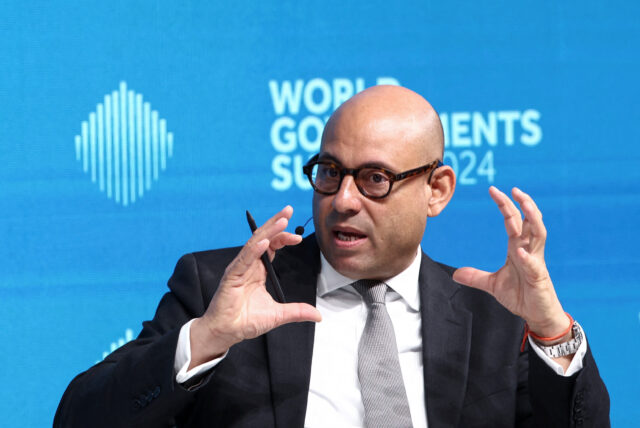LONDON/BRUSSELS: Global warming is slipping down politicians’ agendas, and governments, business leaders and development banks have just about two years to act to avert far worse climate change, the U.N.’s climate chief said on Wednesday.
Scientists say halving climate-damaging greenhouse gas emissions by 2030 is crucial to stop a rise in temperatures of more than 1.5 Celsius that would unleash more extreme weather and heat. Yet last year, the world’s energy-related CO2 emissions increased to a record high. Current commitments to fight climate change would barely cut global emissions at all by 2030.
Simon Stiell, Executive Secretary of the United Nations Framework Convention on Climate Change said the next two years are “essential in saving our planet”.
“We still have a chance to make greenhouse gas emissions tumble, with a new generation of national climate plans. But we need these stronger plans, now,” he said. Speaking at an event at the Chatham House think-tank in London, Stiell said the Group of 20 leading economic powers – together, responsible for 80% of global emissions – urgently needed to step up. The main task for this year’s U.N. climate negotiations is for countries to agree a new target for climate finance to support developing countries struggling to invest in shifting away from fossil fuels and fighting climate change.
Stiell said more climate finance should be delivered through debt relief, cheaper financing for poorer countries, new sources of international finance such as a tax on shipping emissions, and reforms at the World Bank and International Monetary Fund, which hold their annual Spring Meetings this month. “Every day finance ministers, CEOs, investors, and climate bankers and development bankers, direct trillions of dollars. It’s time to shift those dollars,” he said.
As well as more funding to the World Bank’s International Development Association, Stiell urged an overhaul of its capital requirements and expansion of its use of Climate Resilient Debt Clauses, which suspends debt repayments in the event of natural disasters.
In a bumper year for elections around the world – with voters going to the polls from India, to South Africa and the United States – Stiell warned that too often climate action was “slipping down cabinet agendas”.
Politicians from Republican frontrunner Donald Trump in the United States, to far-right parties seeking gains in the EU’s upcoming election, have pushed back on climate policies as they court voters.
(REUTERS)
Also See:
















